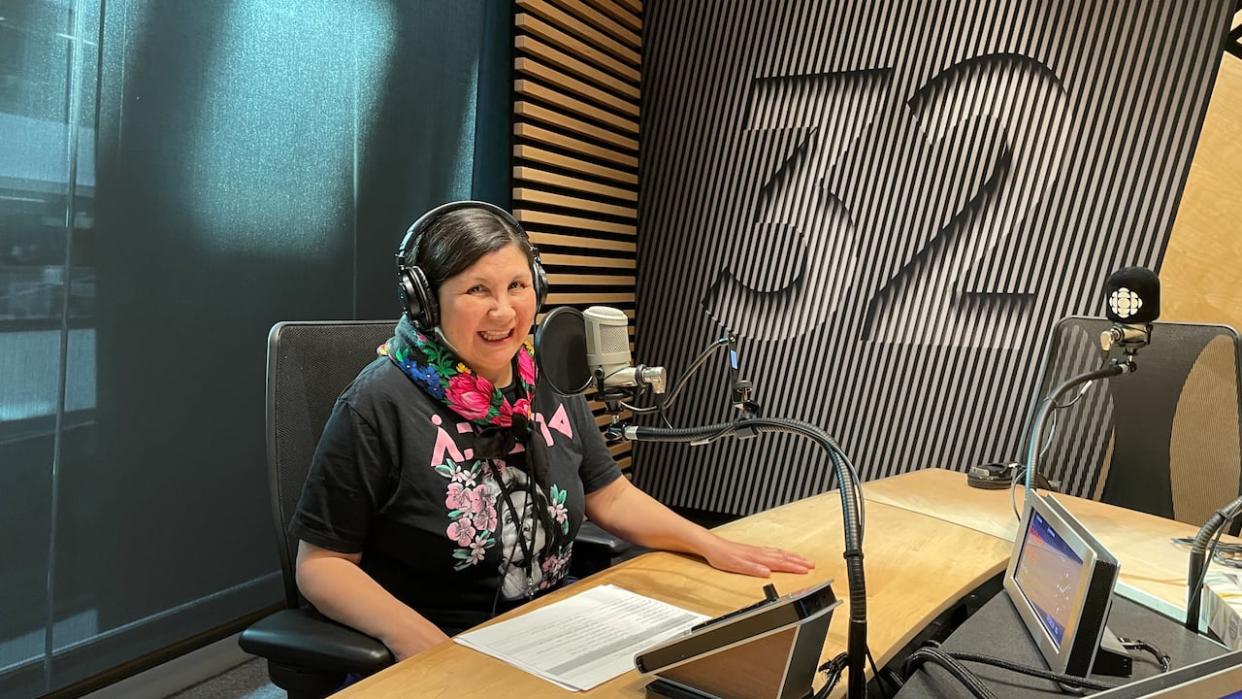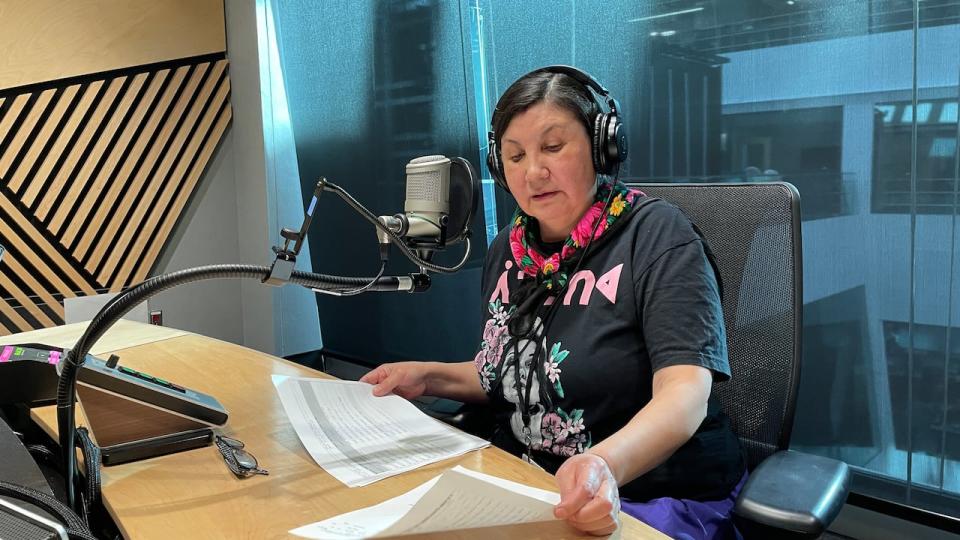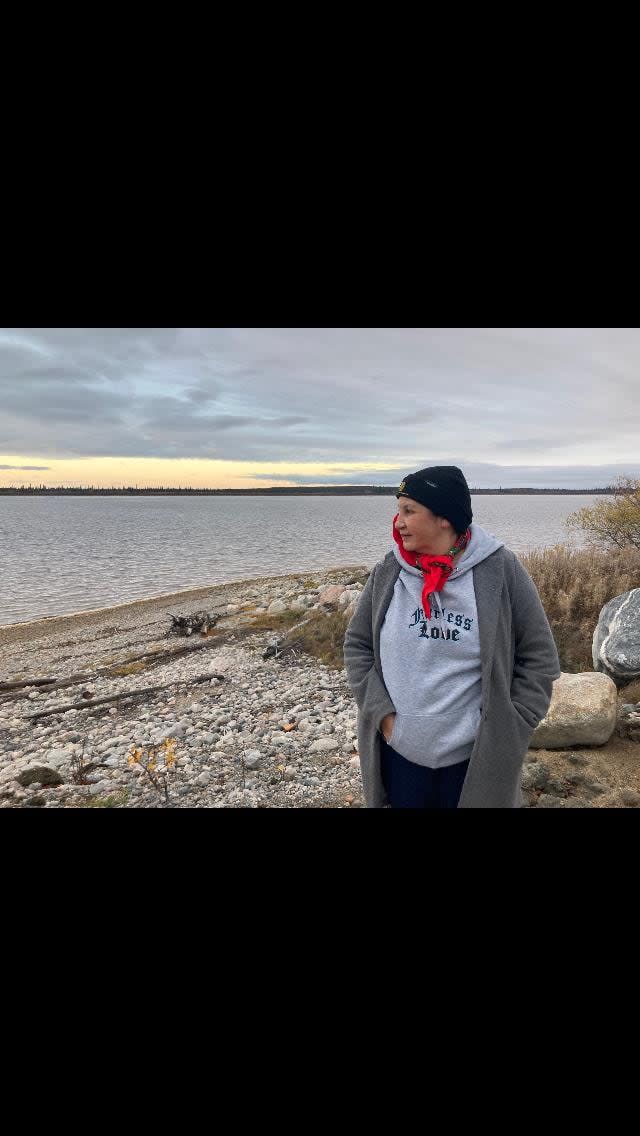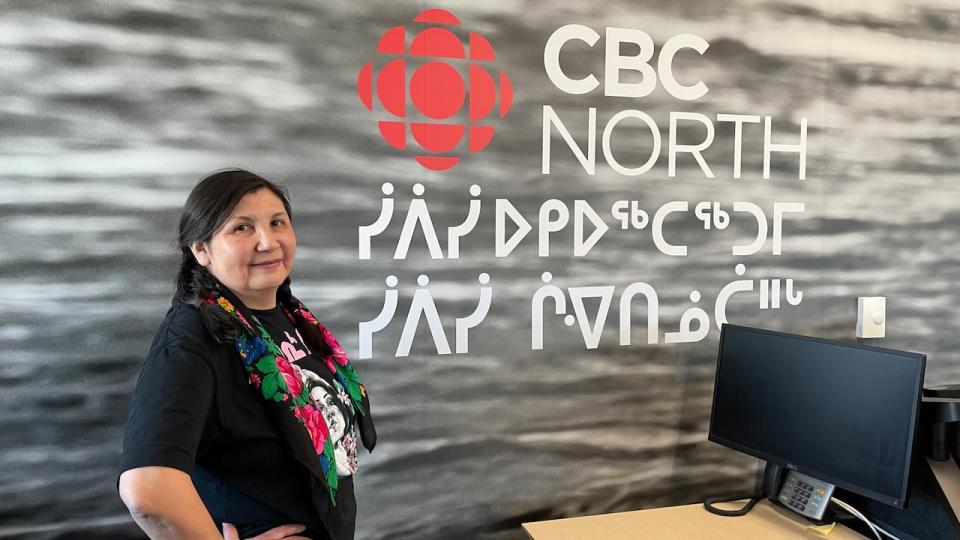Meet Elma Moses, the new host of CBC Radio's Winschgaoug

After a career as an educator, translator and archivist, Elma Moses is starting something new: passing down her Cree language skills through storytelling as the new host of CBC Radio's Winschgaoug.
"Oral tradition and storytelling is very much alive within the Cree community. We have to pass on that knowledge of speaking in Iiyiyii Ayimuun (Cree) and listen to the next generation," said Moses.
Winschgaoug — "wake up" in English — is a morning radio show that airs live every weekday from 8 a.m. to 9 a.m, in the Cree communities of James Bay. The program first aired in 1980 and continues to be one of the very few radio shows delivered all in the Cree language.
Moses has been co-hosting for the past few weeks, now she is the sole host of the show.
Moses is originally from Eastmain, Que., and earned her PhD in Education from McGill University in 2013. She has two daughters.
As an educator, translator and archivist, Moses has mostly worked in French and English through her career. Her new role means she gets to work in her mother tongue of Cree.

Moses in the studio. Every weekday morning from 8 to 9 a.m., Winschgaoug provides listeners with stories and conversations about hunting, traditional practices, and the environment, along with the latest weather, news, sports and more. (Vanna Blacksmith/CBC)
"I've been listening to CBC Radio for a long time. The connection [between] the host and the audience, as you're sipping your coffee or your tea in the morning is [special], you know?" Moses said, adding that she remembers listening to Winschgaoug when she was a teenager.
"I remember when I first did the weather my pace was really off and I was like, trying to rush into it," said Moses, adding that she's learned a lot from her colleagues Betsy Longchap, Cheryl Wapachee and Marjorie Kitty.
Over the years, Moses has been able to work in the Cree language — ever since her very first job as a translator.
"In those days, we didn't have much resources to use. So I had to find ways to do the translation," she said. "So those are the skills that I'm transferring."
But she says she has a long way to go. Winschgaoug is one of the few radio shows delivered all in Cree.

Moses, a residential school survivor originally from Eastmain, Que., looks onto the Eastmain River. (submitted by Leah Watts)
"As a residential school survivor, I think Cree language is important," said Moses, adding that she learned how to read and write in Cree in day school.
Moses is a survivor of Couture Student Residence, a residential school around Fort George Island, near the mouth of what's now the La Grande River. She attended the school for several years starting when she was five years old.
Moses now lives in Montreal. She has to get up early for the commute to the radio studio. It is a new journey for Moses, and a challenge that she accepts.
"I really love doing live interviews because you're in contact with the people and you actually see them. So that aspect is [hard]. I still have a long way to learn," said Moses.
Moses loves in-person conversations, and radio still holds a special in her heart.

Moses is aiming to fill the airwaves with stories about Cree women, youth, and the 2SLGBTQ+ community. (Vanna Blacksmith/CBC)
"It brings you into your day. The songs they play and the stories they tell — I find that fascinating," said Moses
"I'm close to the end of my career, so I finally have a chance to actually work in my language. And use it on the radio. That is really exciting for me," said Moses.
She's aiming to fill the airwaves with stories about Cree women, youth, and the 2SLGBTQ+ community, along with stories and conversations about hunting, traditional practices, and the environment. She's also interested in how Cree people continue to practice their culture while living in urban areas.
"What I'm hoping for is that the youth will continue to listen to the radio," said Moses, recalling how she did that when she was a teenager.
First, she has to set her alarm clock for 5 a.m.

